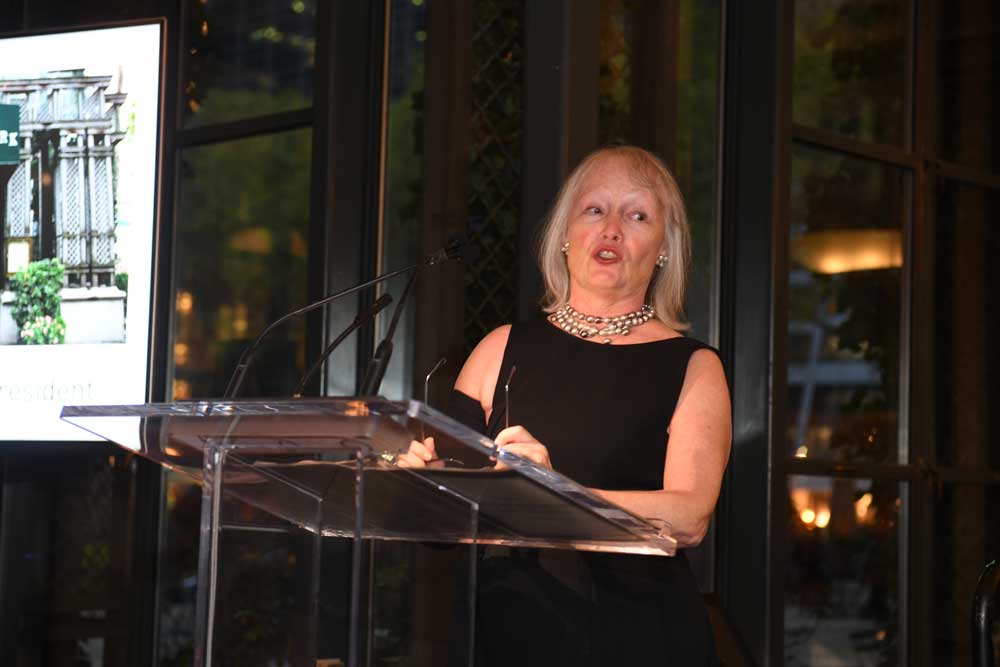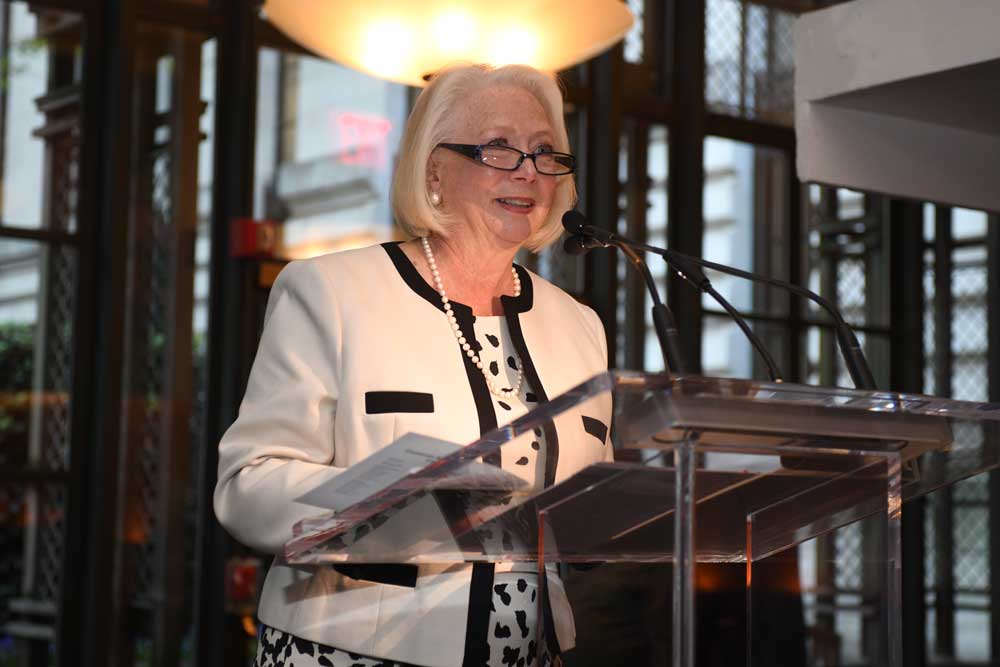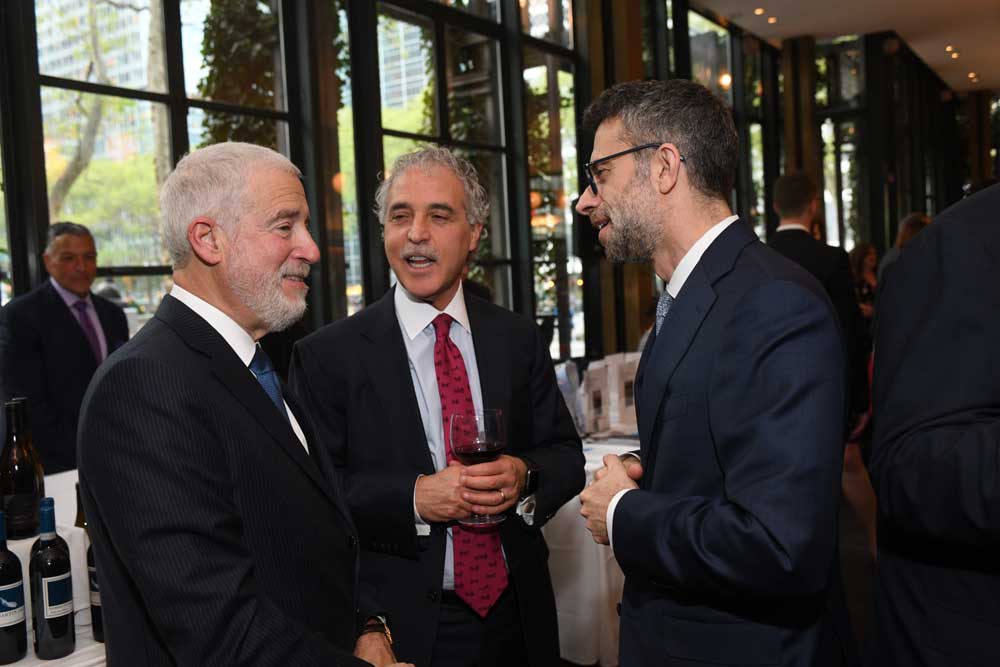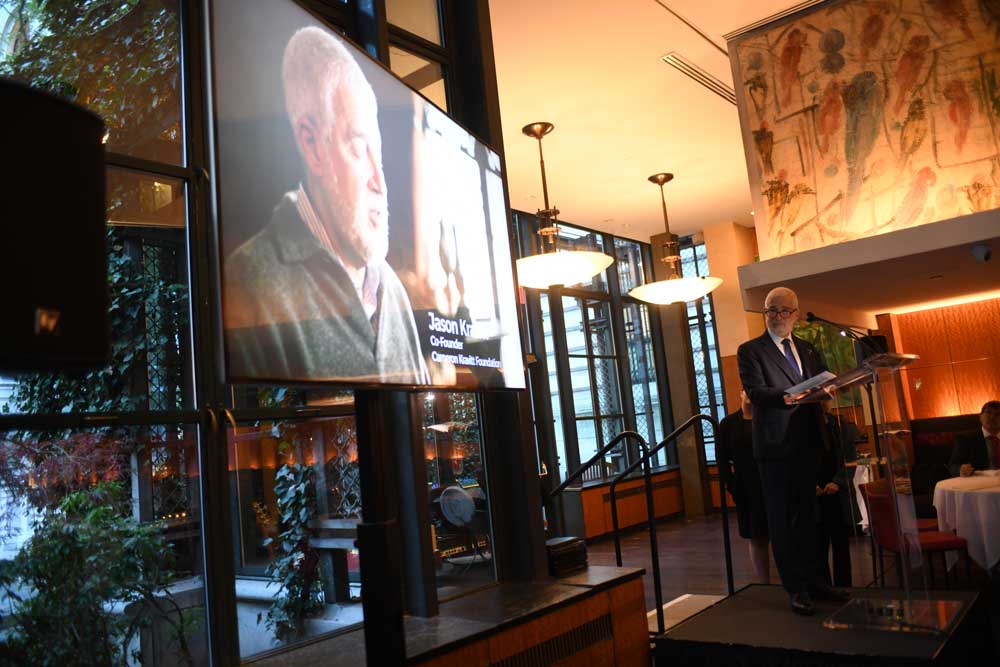The Cambridge University/East Of England School Of Paediatrics Cameron Kravitt Foundation Bereavement Seminar
In October 2017, the first Cambridge University/East Of England School Of Paediatrics Cameron Kravitt Foundation Bereavement Seminar took place at Murray Edwards Hall in Cambridge, UK.
In the UK, we have the same problems as are found in the United States. Tragic deaths can occur in newborns and older children, and their parents need a compassionate and empathic doctor to deliver the worst news of all.
As in the United States, we know that experience, good communication skills and proper training are crucial to help young doctors do this well. Furthermore – we know it is sometimes done badly. Parents and their families can be scarred for decades by the experience.
We have built the Cambridge iteration of the Seminar on the amazing work done before us at Johns Hopkins Childrens Center, and at the Weill Cornell Medical College, with the support and generosity of the Cameron Kravitt Foundation and leadership and wisdom of Beverly and Jason Kravitt. The courses, therefore, have much in common; at the core is the emphasis on experiential learning, with an opportunity for every candidate to spend 45 mins running an emotionally gruelling role play scenario with two actors playing the bereaved parents. In the afternoon sessions, candidates hear from the real-life bereavement experiences of bereaved parents in the Parent Panel. They learn core facts around post-mortem examination and spirituality/support services, to give them greater confidence in leading the difficult conversations that follow bereavement.
The day concludes with an innovative self care and resilience session, with new elements introduced by Prof Janet Serwint and Dr Lorene Rutherford. They have shared so much from their huge experience developing these Seminars over the last two decades, and it is wonderful to continue to innovate with them. The day concludes with a mindfulness meditation, which enables us to put back together the emotional wellbeing of the candidates after a gruelling but strangely wonderful day.
So – does it make a difference? We recognise that this is a very difficult area in which to make measurements, particularly over long periods of time. However – the feedback from this course has been stellar. We seek feedback after every training day for registrars within the East Of England School Of Paediatrics. In 15 years, we have never had so many trainees clearly indicate that they think the training delivered will have a lasting positive impact on them, as we do for the Cameron Kravitt Bereavement Seminar. The qualitative feedback shares the huge emotional impact of the course; it is clear that the course changes *attitudes* as much as it imparts knowledge. There is a step change in the confidence of the registrars to go forward and deliver this news in the kindest and most human way possible.
We are hugely grateful to the Cameron Kravitt Foundation for sharing our hopes for the next generation of paediatricians; for them to truly feel that our profession is a calling, and that we must help them to find the hardest words to say.
Feedback From Cambridge Residents:
- “It gave me insight on what might be helpful to families in these situations.
- The talk by Jason Kravitt was very powerful.”
- “Fantastic acting and reflection of the group. This is a relatively common scenario for paediatricians and a great way to practice in a safe environment.”
- “The actors were very convincing and made the whole role playing a very relevant experience. Felt immensely real, brought up real emotions.”
- “AMAZING actors! The session is so much better for having them. Thank you for organising this. Also fabulous to have a non-medic providing feedback.
- Very difficult scenario, very well handled by faculty. “
- “Powerful and emotional. It showed me anger parents might feel.”
- “I learned a lot about the role of the hospice. The session normalised spirituality and the role of chaplaincy.”
- “It was excellent. An area poorly attended to in medical training. “
- “It has been five months since the Seminar. I am finding that my thoughts turn to the learning from that day when a child has died, and my communication with the family is hugely informed by it. I can see that it will have a lasting impact on my practice.
- The personal story
- I am allowed to show emotions to parents
- Certain phrases – simplicity of language used
- Cope better next time
- We may “break bad news” regularly but for family this is the worst experience of their life, and each time must be treated with this respect.
- The importance of non-verbal communication
- Offer support at the end.
- Silence is very powerful.
- Ensure I am always available for a follow up discussion. Always request feedback if a colleague is present as can always improve.
- It’s ok to be human.
- Use of certain phrases where appropriate.
- Listen and be there to support.
- How Dr looked after parents and the way she talked through.
- Take time without interruption.
- The power of silence and give parents much needed time.
- Be honest and give clear information to the family. Be empathetic.
- Make pauses, be comfortable with your own emotions.
- It is ok to show emotion, offer condolences, touch if appropriate.
- Parents comment that a loss is a loss whether very early in pregnancy or in childhood.
- Personal insights from those involved, particularly Jason Kravitt.
- To always stop and think, and allow feelings to arise.
- Always check back in with parents. All death matters, whether it is a miscarriage, stillbirth or neonate, every life has value and meaning.
- Consider longer pauses/use of silence
- Be more personal/less clinical with parents
- There were useful phrases that I picked up.
- Try and establish a rapport with parents and interpret their cues.
- Pause and give space to parents.
- Clear message for parents but importance of maintaining empathy.
- Always give space to grieving parents.
- Importance of using clear words when saying a child has died.
- Express my own opinion/agenda rather than keeping it.
- It’s ok to be human.
- Always allow space for emotions, even anger, immediately after sharing news of child death.
- Compassion.
- Insist/be firm about parent sitting down before bad news is broken to them.
- How to stay calm even when parents are shouting at you.
- To try and get down to parents level physically if possible.
- It matters how you say things. Pauses.
- Silence is good.
- Many different ways to say things. All ok if the emotions appropriate.
- The process for a child brought in dead/unexpected death of a child.
- Parents don’t remember all exact details Things are a blur and if you are kind and compassionate they will even forgive you if you feel you said it the wrong way.
- Thinking about changing delivery of information depending on person’s wishes
- Importance of letting parent reaction and emotion washing over you – no defensive reactions.
- Multiple things – handshakes! Silences are so helpful.
- Try and establish a rapport with the parents and interpret their cues.
- It is ok to seem visibly upset – parents respond more positively than negatively to this.
- Important to have an opening statement but then need to respond to the family’s needs.
- Be aware of unconscious non-verbal behaviours/expressions and appropriateness in such a situation.
- No matter how difficult the situation, be real and speak the truth.
- Consider whether questions being asked are rhetorical as part of coping with news, or actually requiring answers.
- To give parents time to express all anger and stay calm.
- Not to say “ok” at the end.
- Don’t ignore parents’ questions.
- Be better paced in my conversation with the family.
- Be aware of body language. Little step by step information.
- Going with parents’ agendas and not just ours.
- It’s ok not to have all the answers and to be honest.
- Not to break bad news too quickly – give warning shot. Also, if you feel like you say the wrong thing, you can address this, get over it and move on.
- Insights from lay observer gave me a different perspective.
- Allow grief to have space – pause and allow silence.
- Parents pick up on words and phrases – choose my words carefully.
- Opportunity to practice in a safe environment and get feedback on my approach.
- To not be clinical; allow emotion. Take my time, give parents time. It’s ok to show emotion.
- Options for referring to local hospice
- Keep in mind what may be important to the family
- Keen to visit hospice
- I will remember the interconnection between chaplaincy and spirituality.
- Offering hospice support to families when children die in hospital.
- Can refer even if a child has not yet visited the hospice.
- Always be compassionate, attentive and use silence.
- Hospices can aid a family in dealing with grief.
- Not able to support cot death. Importance of when to allow a family time to be alone.
- Hospice accompany parents after death and assist with funeral arrangements.
- Attentiveness, presence and compassion. Endeavouring to identify and meet parents needs holistically.
- The role of the hospice in supporting bereaved parents.
- Check hospice criteria prior to offering it to families.
- To offer hospice if appropriate.
- Supporting the patients’ and parents’ spirituality.
- I think we need more spirituality/chaplaincy work earlier in patients’ journeys ie. In hospitals.
- Do not offer hospice unless you are sure the patient meets requirements.
- Compassion, silence, calm.
- Able to stay and visit body for a week after death.
- Ways to raise issue of spirituality with families.
- To focus on attentiveness.
- I will make sure I am aware of all the options available to parents after death.
- Children can go to the hospice after they have died.
- That body can be returned to parents
- Issue regarding pre-term babies and cremation if not seen
- PM results should be issued within 6 weeks and discussed by consultant closest to the family
- Limited (voluntary) PM is an option
- The “because of” statement for different sections of the death certificate.
- Process for PM.
- Autopsy process.
- Be able to explain a PM.
- Discuss with the pathologist before giving a decision.
- Not to promise parents when to take the baby.
- The legalities of post-mortem, coroners inquests.
- Knowledge about death certificate and when to contact coroner.
- To contact coroner’s office for dialogue if questions.
- Information re: autopsy.
- When to contact the coroner.
- Difference between coroners and requested post-mortem.
- What a hospital post-mortem actually involves.
- Death certificate process.
- It can take up to 6 weeks for results.
- Need to set goals
- We have to look after ourselves first, or how can we look after others.
- Look after myself.
- Remembering to care for yourself as part of good care for your patients.
- Learn to thrive and not just survive.
- Prof Serwint’s lecture – just wow.
- Develop more self-care strategies.
- Self care is not selfish.
- Thinking about myself is not being selfish and it may improve communication.
- To relax.
- Employ resilience strategies in personal and professional life, during and after traumatic events. Importance of nutrition and exercise, mindfulness and meditation.
- Take time out when stressed.
- Meditation.
- To give more care to my own recovery
- To take care of myself
- Practice some of the resilience skills that I learnt following difficult/traumatic experiences.
- Individual wellness plan.
- When a consultant to have debrief sessions. Now to take 10 minutes.
- Remember to take the time to reflect and debrief. Look after yourself first and then you can help others.
- 5 step model suggested by Sara O’Curry.
- Reflection will improve my ability to cope.
- Talk about difficult situations and how they have affected me.
- Meditation works!





